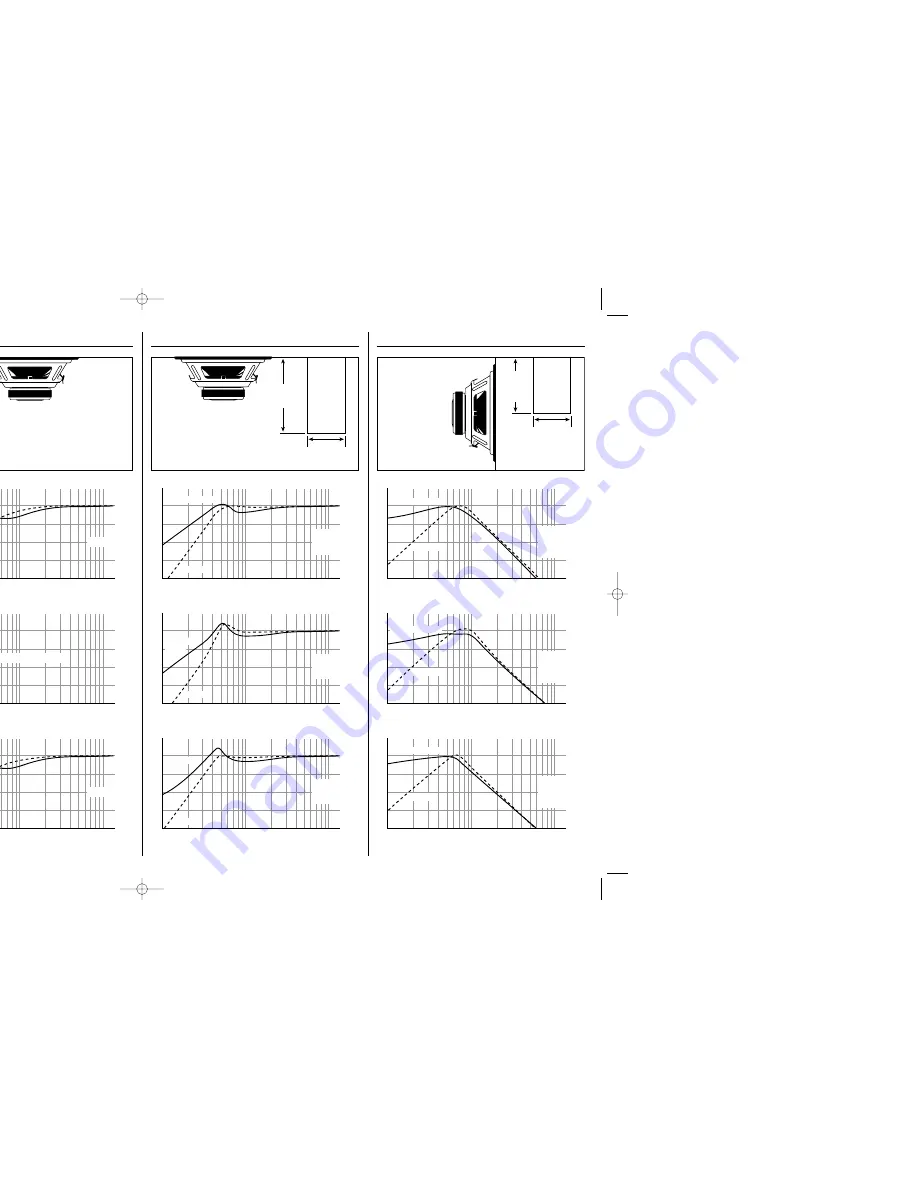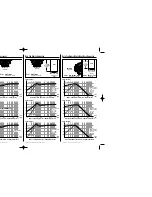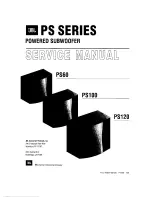
B
ETA
T
EN
V
ENTED
E
NCLOSURE
B
ETA
T
EN
S
EALED
E
NCLOSURE
V
BOX
=
Box Volume
(see responses below)
Beta Ten
(side view)
Port
D = diameter
(see responses
below)
L = length
(see responses
below)
dB (Normalized)
Freq.
(Hz)
100
500
50
1k
Beta Ten Vented Enclosure – Flat Response
10
-30
-20
-10
0
Free-Field
V
BOX
*= 0.60 ft
3
L = 6.50"
D = 2.50 "
Close-Field (In Car)
dB (Normalized)
Freq.
(Hz)
100
500
50
1k
Beta Ten Vented Enclosure – Enhanced Response
10
-30
-20
-10
0
Free-Field
Close-Field
(In Car)
V
BOX
*= 1.00 ft
3
L = 3.75"
D = 3.00 "
dB (Normalized)
Freq.
(Hz)
100
500
50
1k
Beta Ten Vented Enclosure – Extended Response
10
-30
-20
-10
0
Free-Field
Close-Field
(In Car)
V
BOX
*= 0.82 ft
3
L = 7.80 "
D = 3.00 "
V
BOX
=
Box Volume
(see responses below)
Beta Ten
(side view)
dB (Normalized)
Freq.
(Hz)
100
500
50
1k
Beta Ten Sealed Enclosure – Flat Response
10
-30
-20
-10
0
Free-Field
Close-Field (In Car)
V
BOX
*= 0.50 ft
3
dB (Normalized)
Freq.
(Hz)
100
500
50
1k
Beta Ten Sealed Enclosure – Enhanced Response
10
-30
-20
-10
0
NOT RECOMMENDED
dB (Normalized)
Freq.
(Hz)
100
500
50
1k
Beta Ten Sealed Enclosure – Extended Response
10
-30
-20
-10
0
Free-Field
Close-Field (In Car)
V
BOX
*= 0.70 ft
3
B
ETA
T
EN
S
INGLE
R
EFLEX
B
AND
-P
ASS
E
NCLOSURE
V
BOXR
=
Box Volume Rear
(see responses below)
V
BOXF
=
Box Vol. Front
(see below)
Beta Ten
(side view)
Port
D = diameter
(see responses
below)
L= length
(see
responses
below)
dB (Normalized)
Freq.
(Hz)
100
500
50
1k
Beta Ten Band-Pass Enclosure – Flat Response
10
-30
-20
-10
0
Free-Field
Close-Field (In Car)
V
BOXF
*= 0.36 ft
3
V
BOXR
*= 0.45 ft
3
L = 6.60"
D = 3.00 "
dB (Normalized)
Freq.
(Hz)
100
500
50
1k
Beta Ten Band-Pass Enclosure – Enhanced Response
10
-30
-20
-10
0
Free-Field
Close-Field (In Car)
V
BOXF
*= 0.30 ft
3
V
BOXR
*= 0.42 ft
3
L = 6.30"
D = 3.00 "
dB (Normalized)
Freq.
(Hz)
100
500
50
1k
Beta Ten Band-Pass Enclosure – Extended Response
10
-30
-20
-10
0
Free-Field
Close-Field (In Car)
V
BOXF
*= 0.45 ft
3
V
BOXR
*= 0.65 ft
3
L = 6.25"
D = 3.00 "
S
UBWOOFER
E
NCLOSURE
T
RADE
-
OFFS
Subwoofer enclosures are classified as sealed (acoustic
suspension) or ported (bass-reflex), and can be built in
many configurations. Here we discuss three popular box
types and encourage you to compare their response
curves, noting the differences in Beta Ten output level
and frequency response versus volume in sealed, vent-
ed, and single-reflex band-pass enclosures.
A sealed enclosure is the smallest and simplest to build,
with high power handling, good phase coherence, and
the most predictable response, at the expense of some-
what diminished sound output. If amplifier power is not
a concern, this is the best choice for most systems, pro-
viding the highest output at the lowest frequencies.
A vented enclosure adds a port (or vent) tuned to the
speaker’s resonance in the box to help boost sound out-
put by “tuning” the rear sound waves so they add to the
front ones. It is more efficient than a sealed box above
the tuned frequency, but more difficult to build properly.
For frequencies below the tuned range, output is less-
ened due to sound cancellation, and there is a 180-
degree phase shift at the tuned frequency. Other draw-
backs are the increased box size for the added port and
diminished power handling due to woofer over-excur-
sion at frequencies below the tuned frequency.
A single-reflex band-pass enclosure counteracts the
sound cancellation properties in vented designs by iso-
lating the subwoofer from the port within its own enclo-
sure. It offers higher power handling, and an automatic
band-pass response to help roll off higher frequencies.
However, it has a 180-degree phase shift at the tuned
frequency. Also, complexity and size are increased, due to
separate front and rear chambers, and it requires
adding substantial midbass drivers elsewhere in the car.
We recommend a sealed enclosure for the Beta Ten.
Depending on your taste in music, you can select a box
volume for a flat, enhanced, or extended bass response
(see graphs on right). The flat response is optimum for
all enclosures and types of music. The enhanced sealed
box provides a “tighter” bass, great for rock and rap. An
enhanced vented box has increased output, but with
diminished transient response and power handling. The
extended sealed box is more efficient at the lowest fre-
quencies, providing added bass boost for jazz and classi-
cal music, but with diminished power handling. The
extended response curve provides the best power han-
dling for vented enclosures.
For more help, please call Infinity technical support at:
(800) 553-3332
*If filling is desired, reduce box volume by 20%.
*If filling is desired, reduce box volume by 20%.
*If filling is desired, reduce box volume by 20%.
Beta Ten Manual 9/16/98 10:33 AM Page 2




















